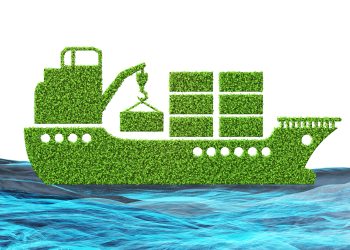In July 2015 the European Commission opened a public consultation on an EU strategy for liquefied natural gas and gas storage. In its response T&E states that natural gas cannot deliver the decarbonisation that the sector needs to achieve the EU climate goals up to 2050.
Investing in this technology would divert necessary resources from truly low-carbon alternatives in the transport sector and would create lock-in effects. Public resources for energy transition in transport should go where it offers the greatest public benefits, improved efficiency, and sustainable electrification.
T&E believes that before the massive implementation of LNG in Europe, further environmental, climate and innovation considerations must be analysed in detail.
- The reduction of GHG emissions is not evident and needs to be tackled. Its production, distribution and use as fuel for transport generates CO2 emissions and even more when considering methane slip/leakage, phenomena which occur with great frequency. Methane slip is often considered in the available literature as a risk during the LNG operational phase as a fuel for marine vessels or lorries, but leakage in the early distribution phase is frequently overlooked. However, the GWP (global warming potential) of LNG (=methane) is very high at all stages, which means it is a barrier to the decarbonisation of transport and may even aggravate the problem of climate change.
- The deployment of LNG as a regular and generalized fuel for lorries and marine vessels is a barrier for further investment in R&D and the development of more sustainable low carbon alternatives for both these sectors. The implementation of LNG as a generalized fuel will result in massive investments in infrastructure development, adaptation of engines and machinery in general, as well as capacity building. The life-span of LNG as a general fuel will inevitably be extended to pay off the initial investment, thus creating a barrier for investment in innovation and the development of other sustainable low-carbon fuels. The risk of lock-in and stranded assets is too large to be ignored. If stakeholders within the private sector would push for its use in transportation, a proper regulatory framework would first need to be in place to ensure that natural gas does not receive any type of public support through tax breaks or support for infrastructure development.
- It should not be forgotten that LNG natural gas – is still a fossil fuel. It still contributes to global warming and its production pathways are energy and resource intensive. This is not consistent with the objectives of the upcoming (beginning of 2016) European Commission communication on decarbonisation of the transport sector. Moreover, switching to LNG will not help the EU to achieve the 60% reduction goal by 2050, established under the EU s White Paper on Transport.
Read more details regarding T&E responses to consultation on an EU strategy for LNG and gas storage by clicking below
Source: Transport & Environment
In the starting, I was outspoken with you propecia before and after has changed my existence. It has become much more fun, and now I have to run. Just as it is fabulous to sit.































































